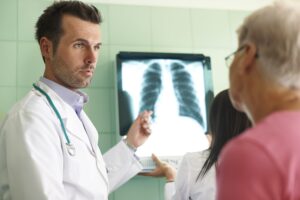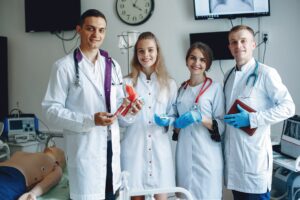We are all aware of the recent public health threat of international concern – coronavirus, COVID- 19. While this virus has badly affected the population of Wuhan – China, and more than 80,000 people worldwide. In China, 2,663 deaths have been reported, and more than 12,000 patients are totally recovered. Fortunately, it is not spread in the community in the United States, which means this health threat can’t affect the population of the US. However, doctors, nurses, medical students who are doing clinical clerkships, or residents treating infected patients are at high risk.
Though the majority of deaths have been limited to China, where the healthcare facilities are limited, it doesn’t mean we can’t expect coronavirus infections in the US. The World Health Organization hasn’t declared the spread of coronavirus to have reached epidemic status, but many countries have started planning to prevent this deadly virus.
Medical schools should take precautionary steps and carry out a complete heath checkup of their faculties and students who have recently traveled to affected areas in China. They should inquire about their travel history before evaluating students and faculty members. Medical schools should encourage seasonal flu vaccine for those staff members and students who don’t get it yet. It will reduce the chances of flu, cold and other respiratory diseases on campus and prevent the chances of coronavirus to spread.
Medical schools and other educational institutes should prepare their students for a possible coronavirus outbreak. They should get their students and their families ready to prevent this infectious disease. Rather than panicking, keep calm and prepare your students and faculty how to protect themselves from the coronavirus outbreak.
How Coronavirus Spreads?
A recent report published by the CDC, coronavirus COVID – 19 can easily spread from one person to another through coughing and sneezing. When a person comes into close contact with the respiratory droplets from the coughs and sneezes of infected people, he can easily get infected.
Keep in mind that you can get infected when you touch a surface or object with the virus, then touches your nose, mouth, or even eyes. Besides oral transmission, a new study suggests that this life-threatening virus can also be transmitted via fecal transmission. People can also get this virus if they contact with an infected person’s blood.
Beware of the Symptoms
The symptoms of coronavirus are similar to cold or flu and appear in a week or two after exposure. Some common symptoms of coronavirus COVID – 19 include:
- Fever
- Cough
- Shortness of breath
- Breathing difficulties
Some hospitals report that patients suffering from coronavirus also had diarrhea and vomiting before the actual symptoms appeared. The deadly coronavirus has a longer incubation period that may appear for 2 to 14 days after exposure to the virus. The virus can also cause pneumonia, and in worse cases, it can lead to organ failure.
How to Prevent Yourself from Coronavirus
Unfortunately, there is no vaccine available to prevent COVID – 19. However, the best way to protect yourself is to avoid being exposed to this deadly infectious disease. According to the CDC, preventive actions can be taken to prevent the spread of respiratory illness.
- Washing hands is one of the best ways to prevent yourself from this deadlier infectious disease. Make handwashing a habit before eating, after coughing, sneezing, and going to the bathroom. It will reduce the risk of transmission by 30 to 50 percent.
- Don’t touch your eyes, mouth, and nose. Keep your hands off your face.
- Cover your mouth while sneezing and coughing with a tissue.
- Clean the frequently touched surfaces with wipes or cleaning spray.
- Stay indoors and avoid close contact with people who have flu, cough, or fever.
- If you are doing your residency training, rotating on clinical clerkships in different hospitals, or working in any healthcare setting where you have close contact with patients, wear facemasks to prevent yourself from the disease.
- Similarly, people who show symptoms of coronavirus are advised to wear facemasks to prevent the spread of the virus to others.
Advice for Medical Schools
Coronavirus is in its embryonic stage, and there is more research needed to understand the transmissibility, symptoms, and prevention of this life-threatening disease. Though there is no approved treatment or antibiotic is discovered yet, with rest and increased fluid intake, you can increase your chances of prevention.
Medical schools that allow international students or faculty, there is a possibility of coronavirus outbreak. They should carefully screen those students and staff members who traveled abroad during the winter break. Students and faculty members are advised to stay home when they are sick; as it is the best possible way to reduce the spread of infection.







